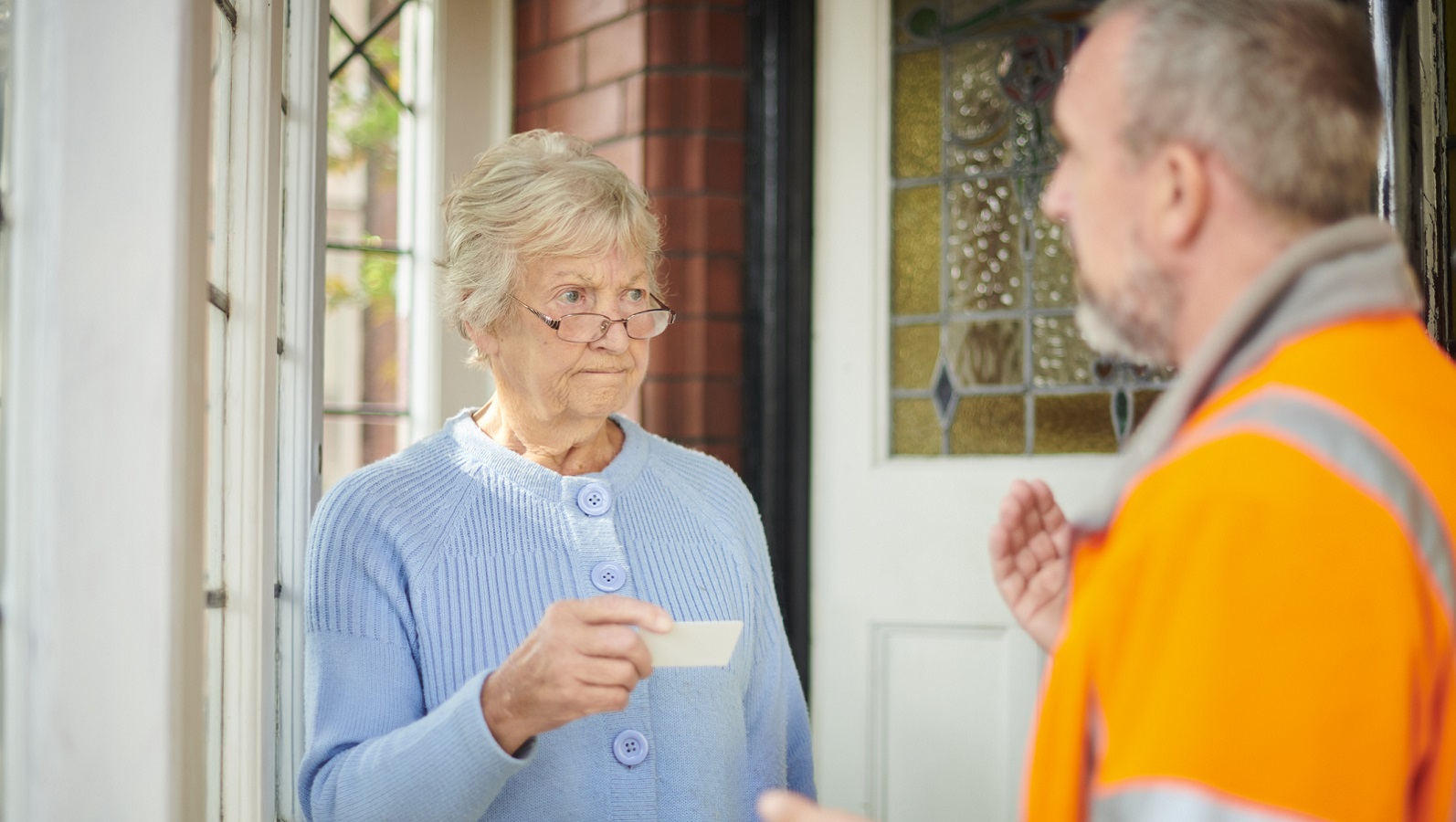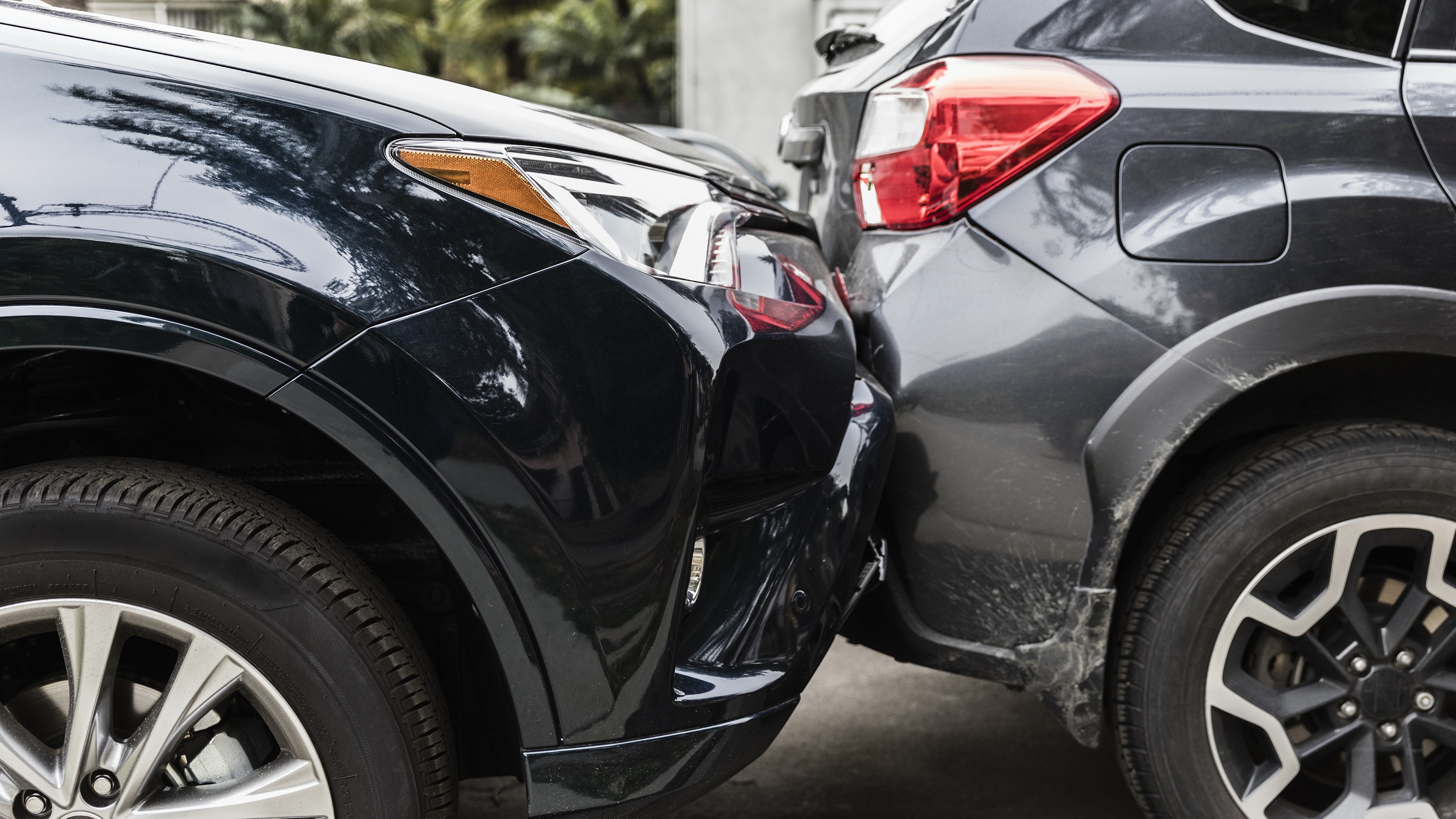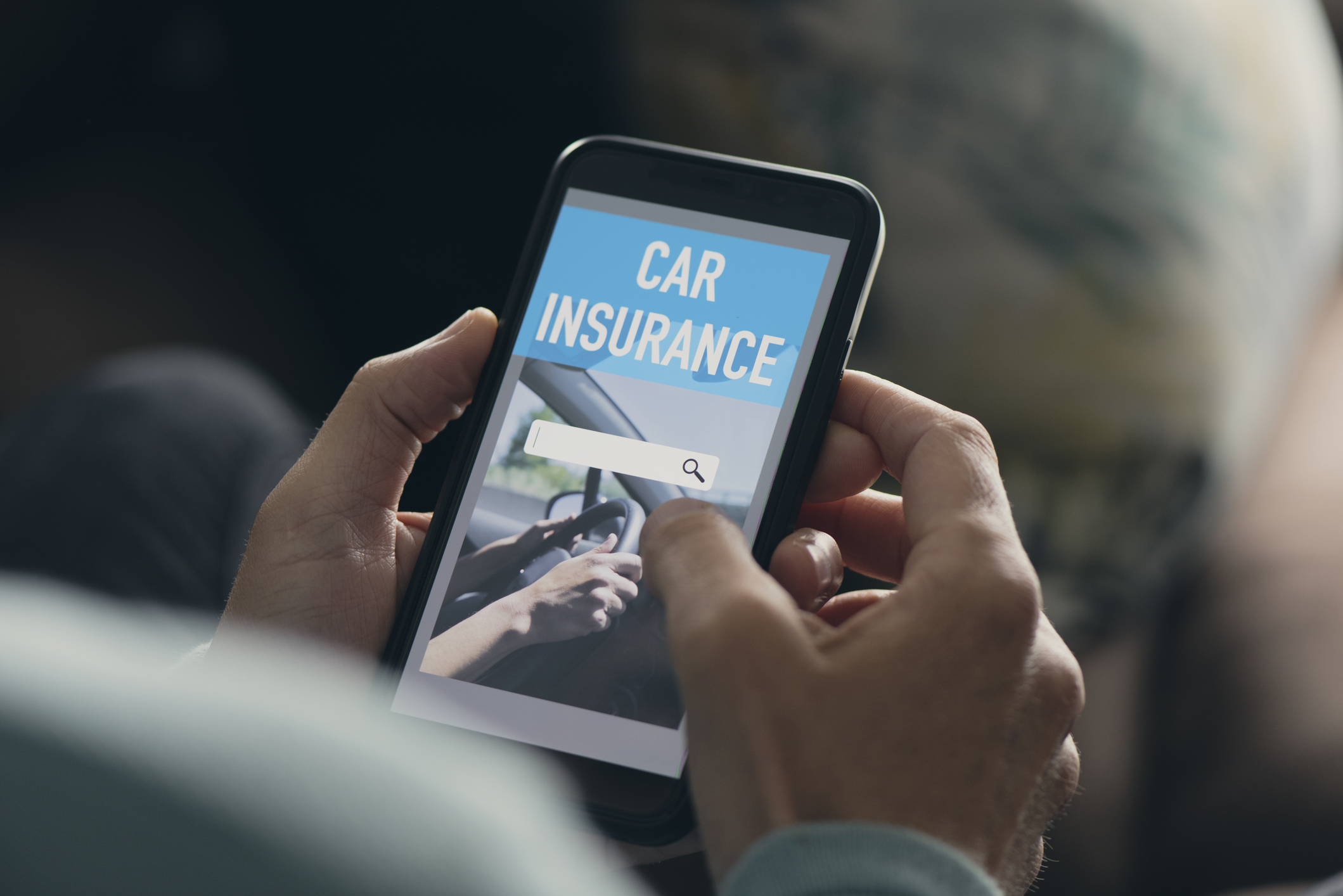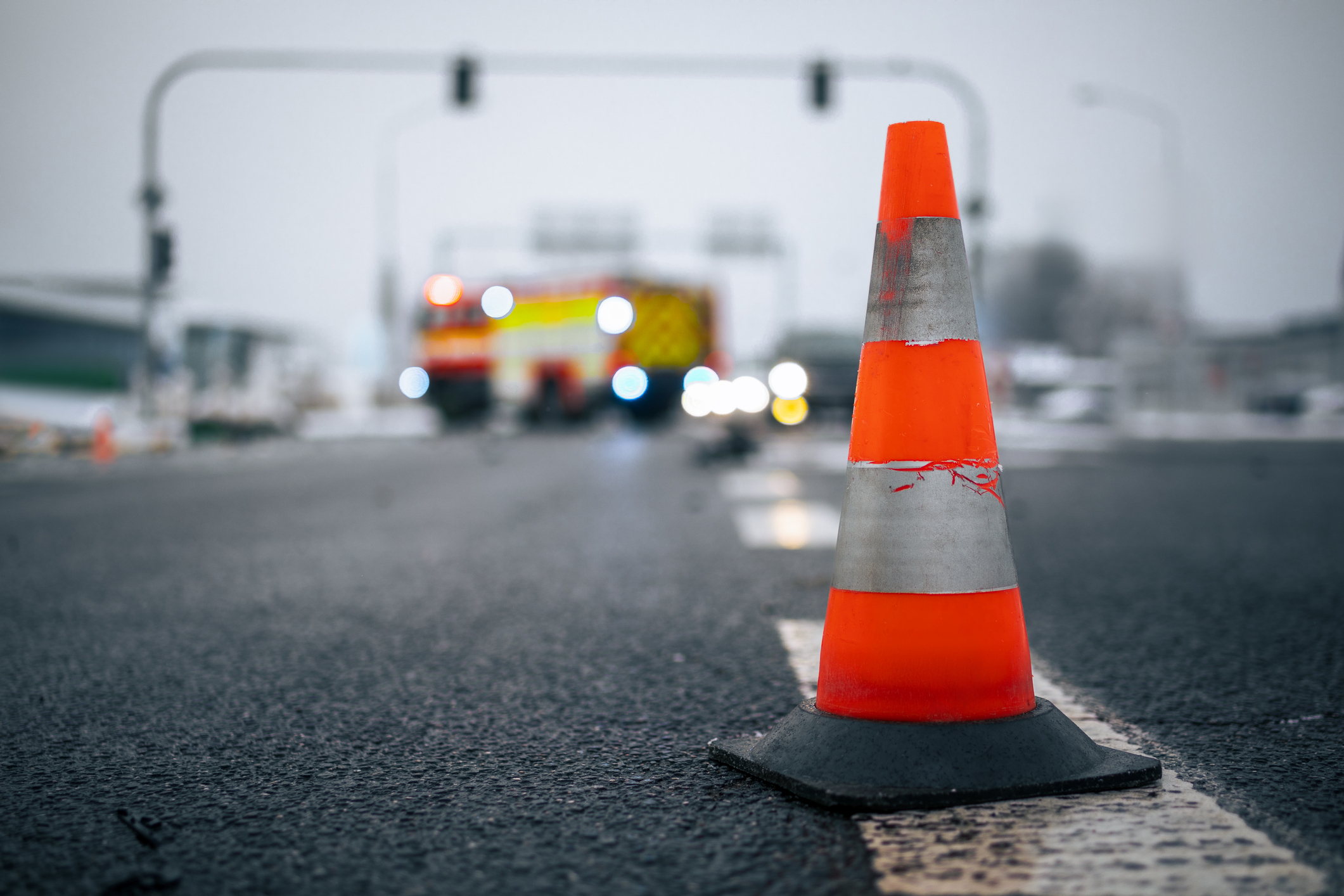‘Storm Chaser’ Scammers Are Targeting Natural Disaster Victims
Beware of storm chaser scammers who turn up after a natural disaster and attempt to take advantage of those impacted, the BBB says.

Joey Solitro

Profit and prosper with the best of Kiplinger's advice on investing, taxes, retirement, personal finance and much more. Delivered daily. Enter your email in the box and click Sign Me Up.
You are now subscribed
Your newsletter sign-up was successful
Want to add more newsletters?

Delivered daily
Kiplinger Today
Profit and prosper with the best of Kiplinger's advice on investing, taxes, retirement, personal finance and much more delivered daily. Smart money moves start here.

Sent five days a week
Kiplinger A Step Ahead
Get practical help to make better financial decisions in your everyday life, from spending to savings on top deals.

Delivered daily
Kiplinger Closing Bell
Get today's biggest financial and investing headlines delivered to your inbox every day the U.S. stock market is open.

Sent twice a week
Kiplinger Adviser Intel
Financial pros across the country share best practices and fresh tactics to preserve and grow your wealth.

Delivered weekly
Kiplinger Tax Tips
Trim your federal and state tax bills with practical tax-planning and tax-cutting strategies.

Sent twice a week
Kiplinger Retirement Tips
Your twice-a-week guide to planning and enjoying a financially secure and richly rewarding retirement

Sent bimonthly.
Kiplinger Adviser Angle
Insights for advisers, wealth managers and other financial professionals.

Sent twice a week
Kiplinger Investing Weekly
Your twice-a-week roundup of promising stocks, funds, companies and industries you should consider, ones you should avoid, and why.

Sent weekly for six weeks
Kiplinger Invest for Retirement
Your step-by-step six-part series on how to invest for retirement, from devising a successful strategy to exactly which investments to choose.
Natural disasters like hurricanes, wildfires and severe storms can bring communities together — but they can also attract scammers. The Better Business Bureau (BBB) warns that these high-stress events often draw in “storm chasers” and out-of-town contractors looking to exploit vulnerable homeowners.
With the National Oceanic and Atmospheric Administration (NOAA) forecasting an above-normal hurricane season and more frequent severe weather this summer, homeowners in high-risk areas should be especially cautious. Disasters create a surge in demand for repairs and cleanup, and scammers are quick to seize the opportunity.
While some contractors may be legitimate, others may lack proper licensing, offer quick fixes or make promises they can’t keep. The BBB advises verifying credentials, avoiding high-pressure sales tactics and never paying in full upfront.
From just $107.88 $24.99 for Kiplinger Personal Finance
Become a smarter, better informed investor. Subscribe from just $107.88 $24.99, plus get up to 4 Special Issues

Sign up for Kiplinger’s Free Newsletters
Profit and prosper with the best of expert advice on investing, taxes, retirement, personal finance and more - straight to your e-mail.
Profit and prosper with the best of expert advice - straight to your e-mail.
The BBB said there are things you should do when hiring any contractor, including making sure you get three estimates for the work, put everything in writing and paying with a credit card. We'll show you how.
Protecting yourself from storm chasers

The BBB provides the following tips to help protect yourself from storm chasers:
- Talk to your insurance company: Ask about your natural disasters coverage and any requirements for filing a claim as well as whether you have coverage related to temporary lodging if your home is no longer livable. Also, ask if the insurer has recommendations for contractors for any work or cleanup that may be required.
- Do your research: If you need to find a contractor, look for a businesses that you can trust using BBB’s search tool. Check with the state or local government agency responsible for registering and providing licenses to contractors in your area. Also, talk with friends and family to see if they have any recommendations.
- Resist high-pressure sales tactics: Whether they show up at your door or call you on the phone, storm chasers will sometimes tout their “good deals” that you will only get if you hire them immediately.
- Be wary of door-to-door contractors: Many municipalities require solicitation permits for door-to-door sales, so if a contractor shows up at your door, ask for identification. You should also check their vehicle for a business name, phone number and license plate for your state.
- Do not sign over insurance checks: Rather than signing over an insurance check, have the contractor send you an invoice and pay them directly, ideally with a credit card since these offer additional fraud protection over other forms of payment. Never sign any forms that give the contractor the rights to your insurance claims. Contact your insurance company directly with any questions or concerns.
- Don’t let contractors go where you can’t see them: While most contractors follow the law, an unethical one may create damage just to get work. Given that, you should not allow anyone you do not know to inspect your roof, attic, crawl space, ducts or any other area of your house where you cannot watch them or see for yourself.
How to find a contractor
Whether you need help after a natural disaster or are simply looking to remodel your home, there are several ways to vet a contractor. These include taking stock of the contractor's credentials and experience, talking to references and checking if they have liability and workers' compensation insurance.
The BBB also provides a how to find a reliable and trustworthy contractor resource page with links to other helpful sites.
Related Content
Profit and prosper with the best of Kiplinger's advice on investing, taxes, retirement, personal finance and much more. Delivered daily. Enter your email in the box and click Sign Me Up.

Carla Ayers joined Kiplinger in 2024 as the eCommerce and Personal Finance Editor. Her professional background spans both commercial and residential real estate, enriching her writing with firsthand industry insights.
Carla has worked as a personal finance and real estate writer for Rocket Mortgage, Inman and other industry publications.
She is passionate about making complex real estate and financial topics accessible to all readers. Dedicated to transparency and clarity, her ultimate goal is to help her audience make informed and confident decisions in their financial pursuits.
- Joey SolitroContributor
-
 Quiz: Do You Know How to Avoid the "Medigap Trap?"
Quiz: Do You Know How to Avoid the "Medigap Trap?"Quiz Test your basic knowledge of the "Medigap Trap" in our quick quiz.
-
 5 Top Tax-Efficient Mutual Funds for Smarter Investing
5 Top Tax-Efficient Mutual Funds for Smarter InvestingMutual funds are many things, but "tax-friendly" usually isn't one of them. These are the exceptions.
-
 AI Sparks Existential Crisis for Software Stocks
AI Sparks Existential Crisis for Software StocksThe Kiplinger Letter Fears that SaaS subscription software could be rendered obsolete by artificial intelligence make investors jittery.
-
 4 At-Fault States With No-Fault Insurance Rules You Should Know
4 At-Fault States With No-Fault Insurance Rules You Should KnowThink you live in an at-fault car insurance state? These four still have some tricky no-fault insurance laws you should know about.
-
 Is There a Downside to Switching Your Insurance Frequently?
Is There a Downside to Switching Your Insurance Frequently?You keep finding lower rates every time you shop for insurance. Is there any reason not to take the better deal?
-
 No-Fault Car Insurance States and What Drivers Need to Know
No-Fault Car Insurance States and What Drivers Need to KnowA breakdown of the confusing rules around no-fault car insurance in every state where it exists.
-
 Why Your Home Insurance Might Not Protect You If Someone Else Lives There
Why Your Home Insurance Might Not Protect You If Someone Else Lives ThereLetting a relative stay in a second home or inherited property can quietly change your insurance coverage and leave you exposed to costly liability claims.
-
 The 1-Month Rule for Setting Your Car Insurance Deductible
The 1-Month Rule for Setting Your Car Insurance DeductibleThe ideal car insurance deductible balances risk and savings. Here's how to find it.
-
 How Drones Can Affect Your Insurance Coverage
How Drones Can Affect Your Insurance CoverageHow insurers are using aerial imagery to assess homes, the backlash from policyholders and how state regulators are trying to rein in the practice.
-
 Does Your Car Insurer Need to Know All Your Kids? Michigan Cases Raise Question
Does Your Car Insurer Need to Know All Your Kids? Michigan Cases Raise QuestionWho you list on your policy matters more than most drivers realize, especially when it comes to who lives in your home.
-
 Is Home Insurance Tax Deductible?
Is Home Insurance Tax Deductible?With home insurance rates on the rise, you might be hoping to at least claim the cost as a tax deduction. Here's what you need to know ahead of tax season.